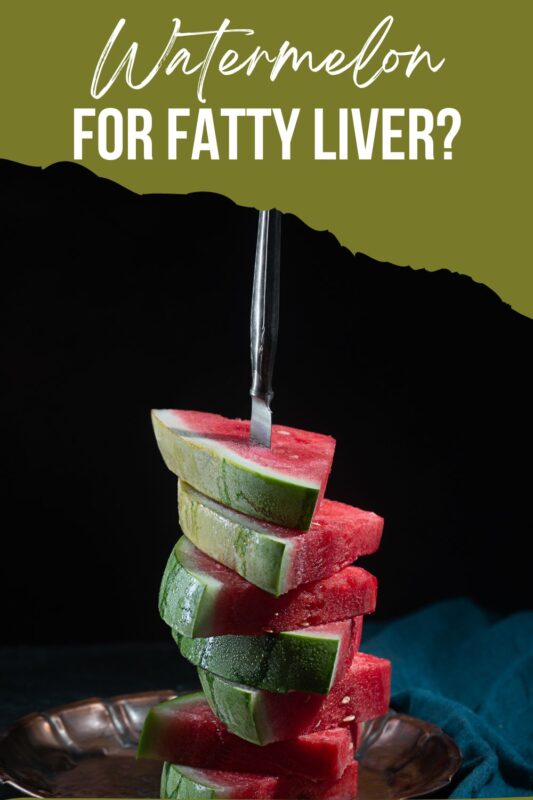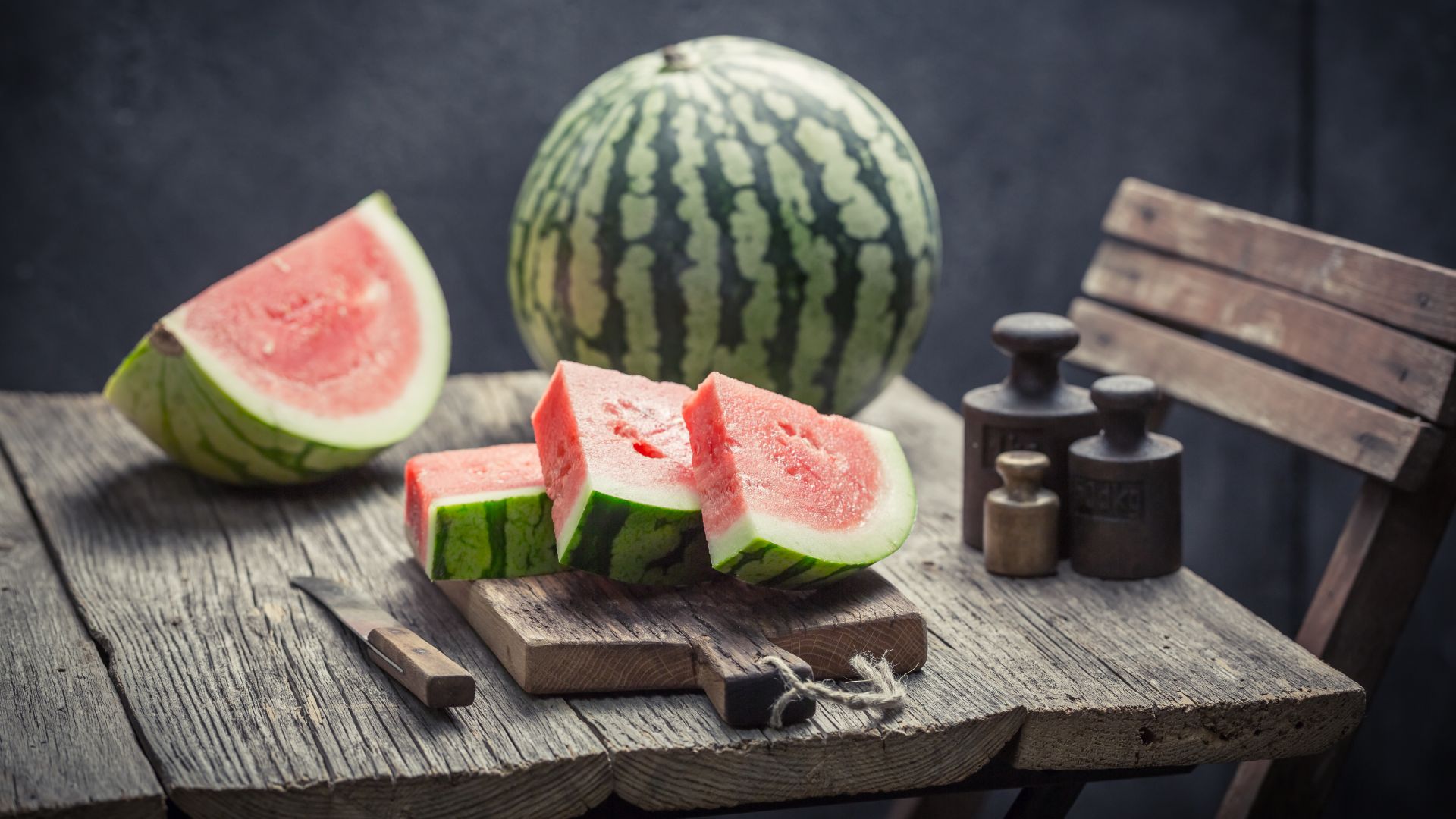Fatty liver disease is a condition that affects millions of people worldwide, but it can be reversed by following a proper diet, exercising and making the required lifestyle changes.
Fruits are always a sensitive topic when it comes to what to eat with a fatty liver. Some experts say that you should stay away from them completely, while others encourage you to consume them.
I think that the best approach is somewhere in the middle: don’t overdo it with them (especially the ones that pack the highest caloric punch and have most carbs), but also don’t eliminate them completely, since they offer your body plenty of nutrients.
And in the realm of fruits that you might not know if you should or should not eat, we have watermelon. Let’s jump in and see whether or not you should have it.
Is Watermelon Good for Fatty Liver?

Yes, you can still eat watermelon if you have a fatty liver disease. But have it in moderation – no more than one portion (the equivalent of a cup) per day.
Watermelons contain many nutrients that can help support liver health, including vitamins, minerals and fiber. They also have plenty of antioxidants and amino acids that are always useful.
At the same time, watermelons have a high sugar content (fructose, which is a carbohydrate) and we should limit our carbs to a minimum.
Therefore, don’t overdo it when it comes to watermelon – but don’t stay away from it, if you enjoy eating this delicious fruit.
To offer my personal perspective too, I did consume watermelon after being diagnosed with a fatty liver disease (and, as you probably know it, I reversed it too).
I strongly believe that fruits play an important role in our diet, so consuming them in moderate amounts will definitely benefit our bodies and liver. Here are some of the ways watermelon is beneficial for one’s health:
- It might help reduce inflammation: Watermelon is rich in anti-inflammatory compounds, such as lycopene (also found in tomatoes) and vitamin C. These can help reduce inflammation in the liver, which can in turn prevent damage and scarring.
- Helps regulate blood pressure: High blood pressure is a common complication of fatty liver disease. Watermelon is rich in potassium, which can help regulate blood pressure and reduce the risk of heart disease.
- Helps with hydration: Watermelon is 92% water. Staying hydrated is important for liver health, as it helps flush toxins from the body.
- Helps improve insulin sensitivity: Fatty liver disease is often associated with insulin resistance. Watermelon is low in calories and high in fiber, which can help improve insulin sensitivity and reduce the risk of type 2 diabetes.
- Helps support weight loss: Obesity is a risk factor for fatty liver disease. Watermelon is low in calories and high in fiber, which can help support weight loss and reduce the risk of obesity.
Also read: Best Salad Dressing for Fatty Liver
The Nutritional Benefits of Watermelon

Going more in-depth, let’s talk about all the nutritional benefits of this delicious fruit. I’ve mentioned some above already, but for those who really want to know all the details, I have them.
Watermelon is a great source of vitamins A, B6, and C, as well as potassium and magnesium. It is also high in antioxidants, which can help protect your cells from damage caused by free radicals.
Watermelon also has Lycopene, which is one of the most powerful natural antioxidants – and most fruits and vegetables don’t have it.
Nutritional information for watermelon
Here is the nutritional info for watermelons per 100 grams.
| Nutrient | Amount |
|---|---|
| Calories | 30 kcal |
| Carbohydrates | 7.6 g |
| Fiber | 0.4 g |
| Protein | 0.6 g |
| Fat | 0.2 g |
| Vitamin C | 8.1 mg |
| Vitamin A | 28 mcg |
| Potassium | 112 mg |
| Magnesium | 10 mg |
| Lycopene | 4,532 mcg |
It’s worth noting that the nutritional value of watermelon can vary depending on the ripeness and variety of the fruit, but the values above should be pretty clear indicators of what you should expect.
If you want to learn more about other fruits and how suitable they are for dealing with a fatty liver disease, check out my previous articles:
Conclusion
In conclusion, watermelon is not only delicious, but also nutritious and can be consumed in moderation by those who have a fatty liver. I did so and I still reversed my condition, so it’s definitely one of the foods you should blacklist.
Even more so, by incorporating this sweet and juicy fruit into your diet, you can help reduce inflammation, regulate blood pressure, improve insulin sensitivity, support weight loss, and keep your liver healthy and functioning properly.
However, it’s important to note that watermelon cannot cure fatty liver disease on its own. It should be part of a balanced diet and healthy lifestyle, along with regular exercise and plenty of rest.

I was diagnosed with a fatty liver back in 2014 and managed to reverse it by mid-2015. Since then, I’ve been studying it, continuously updating my knowledge with the latest scientific findings and practical approaches to give others the help they need to reverse their condition.
My approach to managing fatty liver is holistic, balancing scientifically-backed information with real-life, practical advice based on personal, direct experience.
I am also the admin of the Fatty Liver Support Group on Facebook and the Fatty Liver Subreddit.

